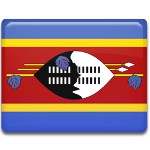Incwala in Eswatini (Swaziland) Date in the current year: January 6, 2026
 The two most important ceremonies in the small African kingdom of Eswatini (formerly known as Swaziland) are Umhlanga (reed dance) and Incwala (first fruits ritual). Incwala lasts for several weeks, from mid-December to early November, and one of its days is a public holiday.
The two most important ceremonies in the small African kingdom of Eswatini (formerly known as Swaziland) are Umhlanga (reed dance) and Incwala (first fruits ritual). Incwala lasts for several weeks, from mid-December to early November, and one of its days is a public holiday.The ritual of Incwala takes place around the summer solstice. Since Eswatini is located in the Southern Hemisphere, it happens in December. The exact date of the ceremony is determined by astrologists based on a whole set of factors known only to them. The main goal of the three-week-long ritual is to unite the citizens of Eswatini, receive a blessing from the ancestors, and celebrate the beginning of the harvest season.
The king of Eswatini is the central figure in the ritual because one of the key goals of Incwala is to strengthen the kingship; when there is no king there is no Incwala, they say. Since 1986, the Kingdom of Eswatini has been ruled by Mswati III.
The ritual is prepared and controlled by priests known as Belwandle (people of the sea) or Bemanti (people of water) because one of their tasks in the ritual is to fetch sea and river water to strengthen the king. Their leader is the chief of the Ndwandwe clan.
Incwala begins with the Bemanti’s departure in sacred boats. One group of priests sets sail to gather sea foam, which is believed to have healing properties, and another group sails along the rivers Mbuluzi, Komanzi and Lusutfu. When the Bemanti sail past villages, locals treat them with the utmost respect and welcome them with small offerings.
Upon their return to the capital, the Bemanti participate in the ceremony known as the Little Incwala. Alongside priests, the participants include the king, his wives, the queen mother and other wives of the late king, and army regiments. Traditional ritual songs are an integral part of the ceremony.
In about two weeks, the main part of the ritual begins. The night before the Big Incwala, young men cut the branches of the sacred tree named lusekwane (a local species of acacia). In the morning, they bring the branches to the capital, where they are used to build a sacred enclosure to celebrate the first harvest.
The appearance of the king in all his splendor marks the culmination of the festivities. He enters the sacred enclosure and tastes the first fruits of the new season (before that, it is forbidden to eat the new season’s crops), while his subjects sing traditional songs. The king spends the following day in solitude in the sacred enclosure, and only his wives are allowed to visit him.
The final day of Incwala is the day of purification. People burn anything they don’t need, signing and dancing around bonfires. The day ends with feasting and revelry. The final ritual of Incwala is the ceremonial weeding of the fields.
* date for 2026
- Category
- Public Holidays
- Country
- Eswatini
- Tags
- Incwala, holdays in Eswatini, holidays in Swaziland, public holidays, harvest festival